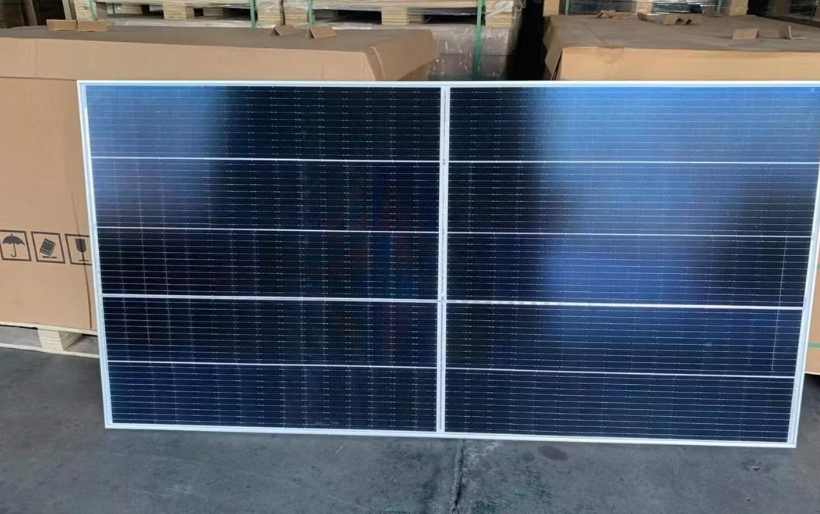Introduction
Solar energy has revolutionized the way we generate and consume power. Whether you’re looking for an off-grid solution, a backup power source, or a way to cut down on electricity bills, a 100-watt solar power system can be an excellent investment. In this article, we’ll explore what a 100-watt solar panel is, how it works, its benefits, applications, and factors to consider before purchasing one.
What is a 100-Watt Solar Panel?
A 100-watt solar panel is a photovoltaic module that can generate up to 100 watts of power under optimal sunlight conditions. These panels are typically monocrystalline or polycrystalline and come with an efficiency range of 15-22% depending on the brand and technology used.
Key Components of a 100-Watt Solar System
- Solar Panel: The primary component that absorbs sunlight and converts it into electrical energy.
- Charge Controller: Regulates voltage and prevents battery overcharging.
- Battery (Optional): Stores energy for later use, essential for off-grid applications.
- Inverter: Converts DC power from the panel into AC power for household appliances.
Benefits of a 100-Watt Solar Power System
1. Cost-Effective Energy Solution
Investing in a 100-watt solar panel is relatively affordable compared to larger systems. It’s a great starting point for those new to solar energy.
2. Portability and Versatility
A 100-watt solar panel is lightweight and easy to transport, making it ideal for camping, RVs, boats, and other mobile applications.
3. Eco-Friendly Energy Source
Solar panels produce clean, renewable energy, reducing carbon footprints and promoting sustainability.
4. Low Maintenance
Once installed, a 100-watt solar system requires minimal maintenance, primarily occasional cleaning and ensuring connections remain secure.
Applications of a 100-Watt Solar Panel
1. Camping and Outdoor Activities
A 100-watt panel can power essential devices such as lights, fans, small refrigerators, and charging stations while camping or traveling.
2. RV and Van Life
For those living on the road, a 100-watt solar panel can keep batteries charged and provide power for small appliances.
3. Off-Grid Homes and Cabins
If you have a small off-grid setup, a 100-watt solar panel can support minimal energy needs.
4. Emergency Backup Power
In case of power outages, a 100-watt solar panel can be a lifesaver for charging essential devices like phones and emergency radios.
5. Small-Scale Farming and Gardening
It can be used to power water pumps, irrigation systems, or lighting in remote areas.
Factors to Consider When Buying a 100-Watt Solar Panel
1. Panel Efficiency
Higher efficiency panels generate more power in less space. Monocrystalline panels usually offer better efficiency than polycrystalline ones.
2. Battery Compatibility
If you plan to store energy for nighttime use, ensure the solar panel is compatible with a deep-cycle battery.
3. Durability and Weather Resistance
Look for panels with strong tempered glass and aluminum frames to withstand various weather conditions.
4. Brand and Warranty
Reputable brands often provide better quality products with extended warranties, ensuring long-term performance.
5. Price vs. Value
Compare different models to find the best balance between price and quality. Cheaper options may compromise efficiency and durability.
Installation and Setup of a 100-Watt Solar Panel
1. Choose the Right Location
Place the panel in an area with maximum sunlight exposure, ideally facing south (in the Northern Hemisphere) at an optimal tilt angle.
2. Connect the Charge Controller
The charge controller is essential to regulate the voltage and protect the battery from overcharging.
3. Connect the Battery (If Used)
If using a battery, connect it to the charge controller before linking it to the panel.
4. Use an Inverter (For AC Appliances)
To power household appliances, an inverter is needed to convert DC power into AC power.
How Much Power Can a 100-Watt Solar Panel Generate?
The actual power output depends on sunlight availability, panel efficiency, and installation setup. On average, a 100-watt solar panel produces around 300-600 watt-hours per day, depending on location and weather conditions.
Example Power Consumption Estimates:
- LED Lights (10W) – 30-60 hours
- Smartphone Charging (5W) – 60-120 charges
- Laptop (50W) – 6-12 hours
- Mini Fridge (60W) – 4-10 hours
Conclusion
A 100-watt solar power system is an affordable, versatile, and eco-friendly way to harness solar energy. Whether for outdoor adventures, off-grid living, or emergency power backup, these compact systems provide a reliable energy source. By understanding efficiency, compatibility, and installation requirements, you can make the most out of your solar investment.
If you’re considering switching to solar energy, a 100-watt panel is a great first step toward a sustainable future!






